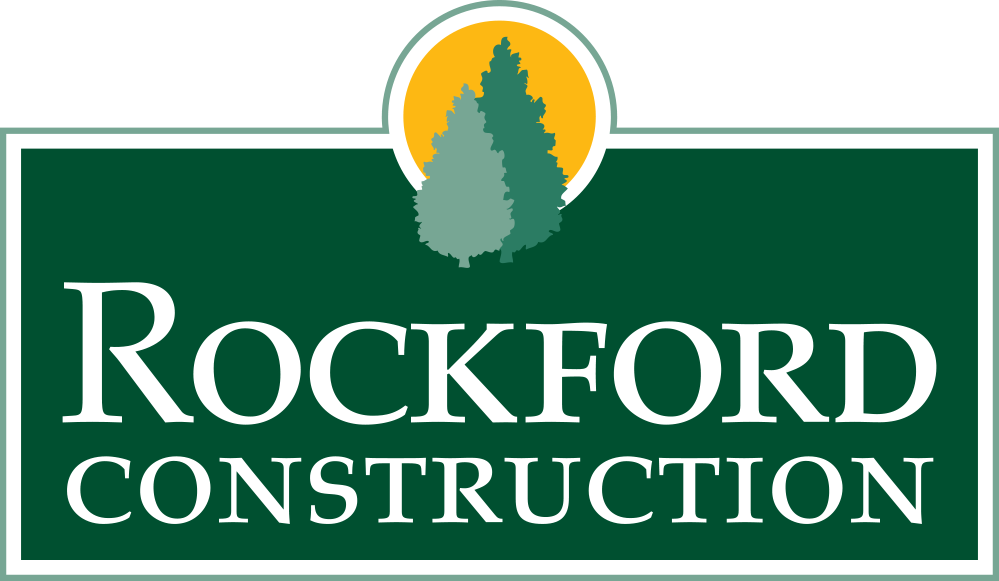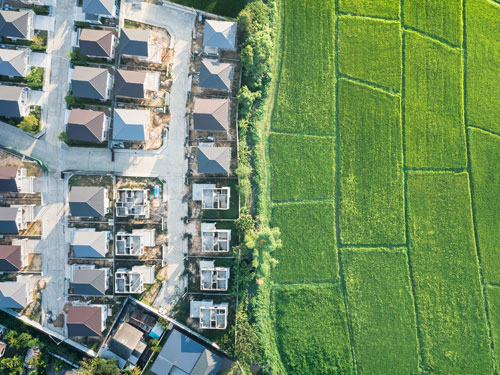
Buying Land to Develop: How should you evaluate the lot?
One of the most important stages of developing raw land for new construction real estate is obtaining the right land to develop. If you don’t secure the right land purchase, you won’t get very far with the rest of your project. Land development projects are extensive, costly, and time-consuming, so getting it right is vitally important.
You need to know how to evaluate undeveloped land to ensure it’s a suitable plot to help you meet your goals. There are multiple factors to take into account when purchasing raw land to evaluate the lot thoroughly.
What Is Raw Land Development?
Raw land development involves buying land to build on it, or sometimes to hold onto as an investment in its own right. Raw land investments can be carried out in a number of different ways and can offer multiple advantages to investors looking for a solid investment. It might involve developing a commercial property or building a residential property to allow someone to find his or her dream home.
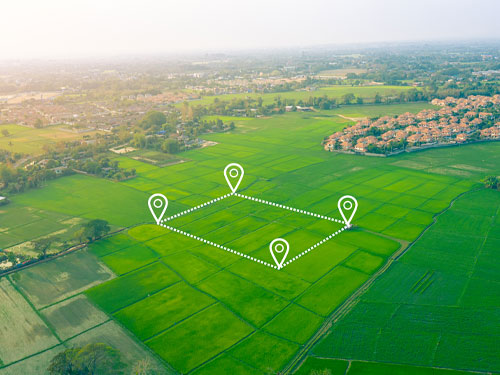
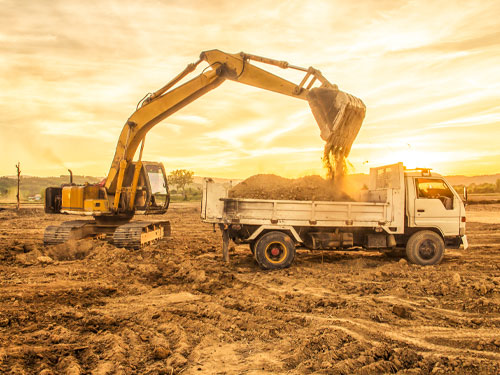
Factors to Consider When Buying Raw Land
When considering real estate investment, it’s necessary to assess the lot that you are considering in different ways. Knowing what to look for and how to conclude whether the land is right for your needs will make the process of purchasing the piece of land easier.
The following factors should all be taken into account when looking for land for a new construction project.
Consider the Development Type (Zoning)
The type of property that you can develop on the land is one of the most important factors to consider. Zoning is necessary to think about here, as zoning laws can dictate what type of developed property is allowed on the lot. Areas can be rezoned by applying to the zoning department, but this can be time-consuming, so it’s vital to be aware of any potential zoning issues in advance.
Zoning laws will dictate not just whether you can build residential, commercial, or industrial property, but also whether you can build different categories of buildings, such as single-family homes, multi-family homes, mid-rise construction or high-rise buildings.
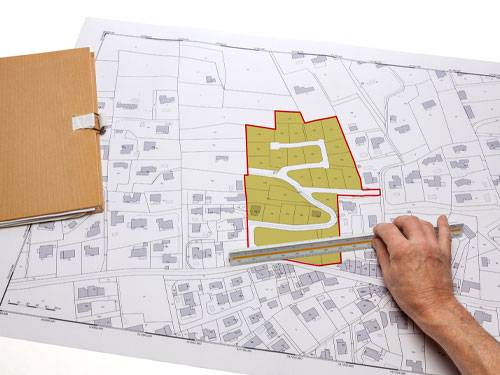
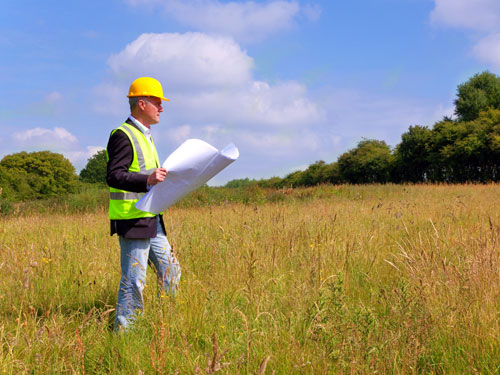
Have an Engineer Review Plans
After doing your own due diligence in researching property taxes, seller financing, offer price and other money-related matters, it is best to hire an engineer to review your plans before you decide to buy raw land.
An engineer can evaluate every aspect of the project, determine whether the plot you are considering is suitable, and even find you some cost savings. Your engineer will look at a range of issues including proximity to infrastructure and utilities, soil quality, whether the land is in a flood plain or flood zone, and more. Any one or combination of these could be a deal breaker and impact your moving forward with the construction project.
Visit the Site When Planning a Construction Project
You never want to purchase a piece of land for development if you haven’t visited the site. It’s important to understand the land and identify potential problems, and a walkthrough of the site can help you to do that better than any key takeaways you’ll get by simply looking at photos and plans.
Visiting the lot and observing the surrounding area can help with assessing the true feasibility of your intent to build on the land. It could look good at first glance, but quickly reveal some issues that you didn’t initially notice.
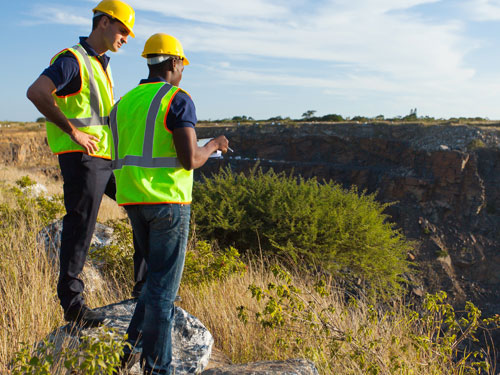
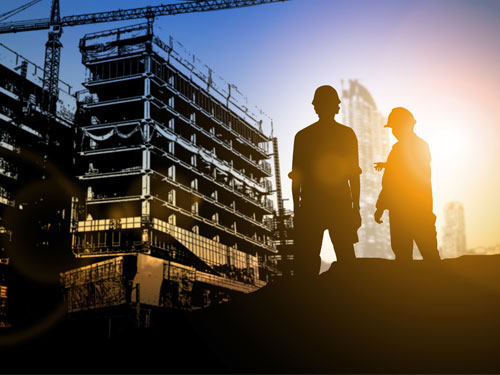
How to Maximize Use of the Land
Knowing how to maximize the use of the land that you have available is key when you want to buy land. Optimizing how the land is used can increase your profits and ensure you’re utilizing the plot in the best possible way. This can include thinking about the layout of the lot, transportation, road access, and other amenities that can all affect how to best use the space.
Understand the Topography
The different features of the lot should all be considered when looking for the right location. You need to understand the various characteristics that the land has so that you can create a plan for its usability. It’s important to map out the plot and your development while taking into account the geographic features of the area. This should form part of your research before buying and building on vacant land.

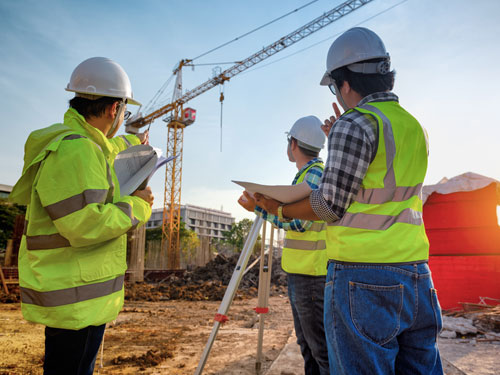
Talk to the Right People
To gain valuable information about a lot you’re hoping to purchase, reach out to the seller or seller’s agent to ask them questions about the lot and its potential. They can give you the basics, from available utilities to boundaries. The local building and planning office for the municipality is another point of contact, which can help you to gain information about zoning, regulations and restrictions. You may be able to obtain a recent survey of the land from the local registrar’s office too. Real estate investors should also talk to a real estate attorney.
A vacant lot can become an extremely valuable investment. Doing your due diligence is vital if you want to buy the right parcel of land.

